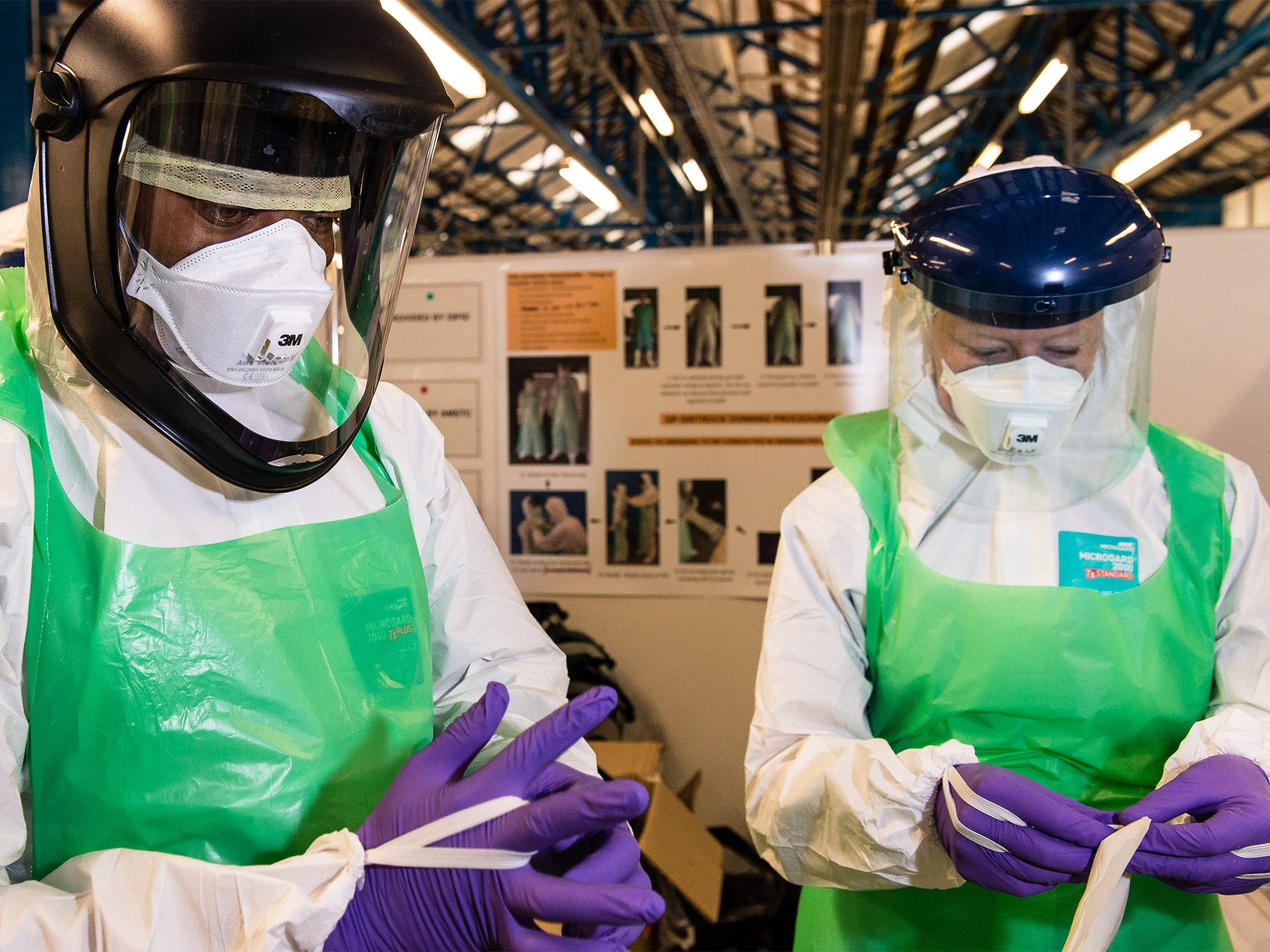Ebola outbreak: We’re ready if the virus should turn into a threat in Britain
We have to accept the probability that a small number of cases will arrive in the UK

Your support helps us to tell the story
From reproductive rights to climate change to Big Tech, The Independent is on the ground when the story is developing. Whether it's investigating the financials of Elon Musk's pro-Trump PAC or producing our latest documentary, 'The A Word', which shines a light on the American women fighting for reproductive rights, we know how important it is to parse out the facts from the messaging.
At such a critical moment in US history, we need reporters on the ground. Your donation allows us to keep sending journalists to speak to both sides of the story.
The Independent is trusted by Americans across the entire political spectrum. And unlike many other quality news outlets, we choose not to lock Americans out of our reporting and analysis with paywalls. We believe quality journalism should be available to everyone, paid for by those who can afford it.
Your support makes all the difference.The news that a nurse in Spain has become infected with Ebola virus should be a final trigger, if anyone needed it, that Ebola is not just a little local difficulty in Africa, but is a threat that could potentially impact on us all.
This nurse, who is the first person to get Ebola outside of West Africa, was infected while caring for a priest who had been evacuated to Spain from Africa. The news is especially troubling given that it comes so soon after Ebola was transmitted for the first time to the United States, by an infected airline passenger.
However those of us who work on Ebola have not been surprised by either of these events. As long as Ebola continues to spread in West Africa, so will the threat to other countries grow. Here at the UK’s Health Protection Research Unit in Emerging Infections, we have been quantifying the risk of Ebola transmission by airline passengers. Its arrival in the United States was predicted, and we should expect this may happen again in the USA as well as in Europe.
But if Ebola is potentially to be spread to other countries, what can they do about this? Although a reflex response might be to shut down international travel to affected countries in West Africa, this is probably not a good idea. By isolating the countries affected, things will only get worse there. A coordinated international humanitarian response is not possible if people struggle to get into the area.
We have to accept that it is probably that a small number of cases of Ebola will arrive in the UK. The key question is could we detect such cases, and how well prepared are we to deal with them. And the answer to both questions is encouraging.
Every week in the UK a group of experts from discuss cases of travellers returning with undiagnosed fevers. This is part of the “Imported Fever Service”, which has run for more than two years. We look at where people have come from, what tests have been done, and consider whether they might have Ebola. Even before the current outbreak in West Africa, a small number of returning travellers were tested every year. So anyone returning from Africa with an undiagnosed fever is likely to be detected soon after coming to medical attention.
The situation in Spain shows that healthcare workers in Europe are at risk of Ebola, just as they are in Western Africa. But the fact that a nurse who recently returned to the UK with Ebola was successfully treated at the Royal Free Hospital in London, without anyone else becoming infected, should be reassuring. We are ready for this new threat of Ebola at our shores, and will deal with it when it comes.
Professor Tom Solomon is Director of the UK’s Health Protection Research Unit in Emerging Infections at the Institute of Infection and Global Health, University of Liverpool
Join our commenting forum
Join thought-provoking conversations, follow other Independent readers and see their replies
Comments